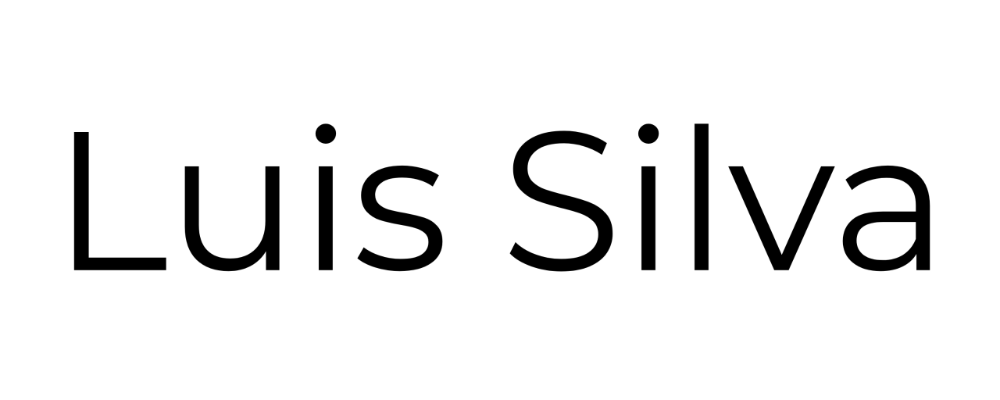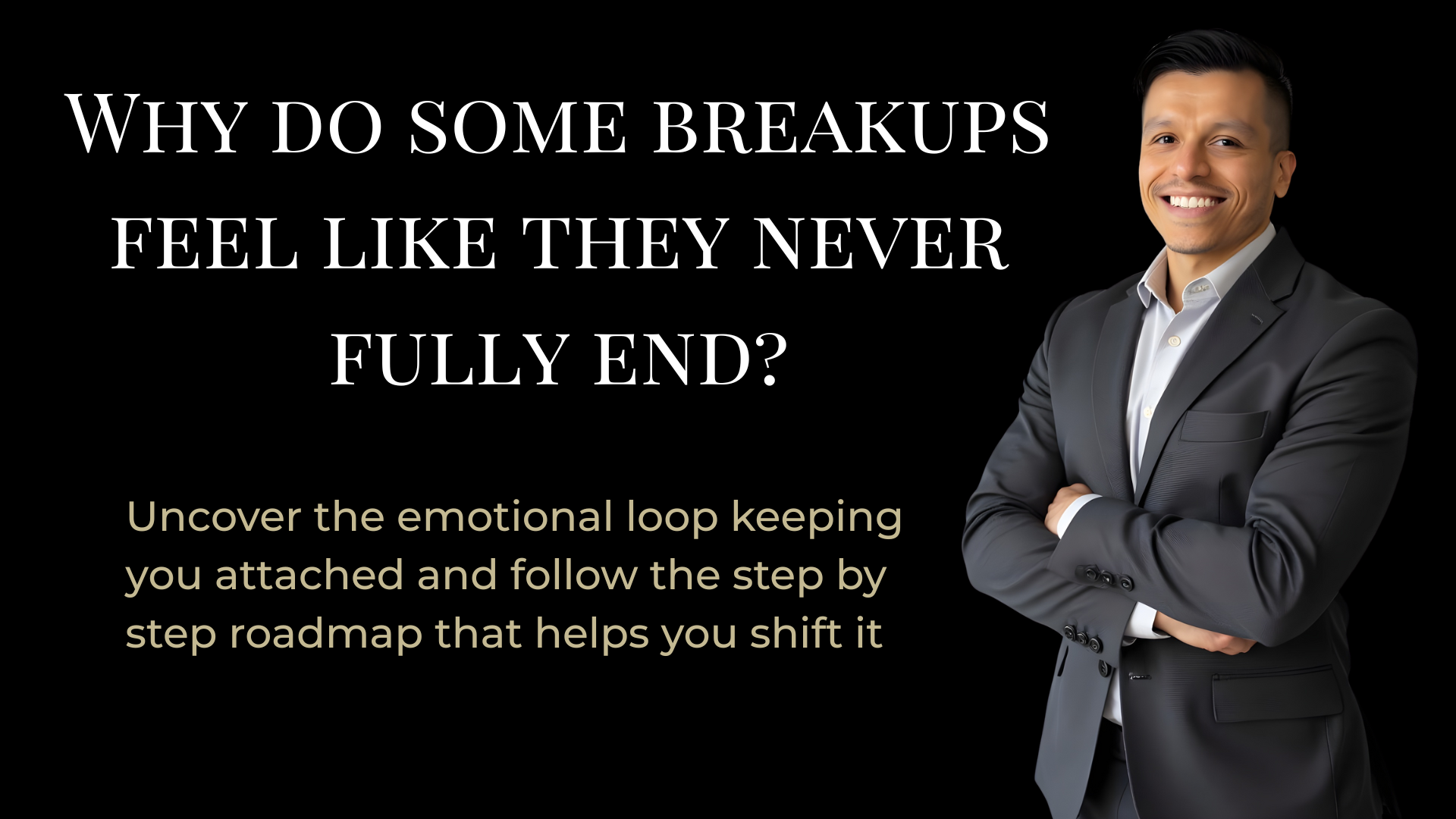
What Nobody Tells You About Dating After a Devastating Breakup
The dating apps are open again on your phone, your friends are setting you up, and everyone's telling you it's time to "get back out there." But here's what they don't understand: navigating the dating world after heartbreak isn't just about finding someone new - it's about confronting the invisible barriers that even the most successful people struggle to overcome.
You might be killing it in your career, leading teams, closing deals, and earning respect in every room you enter. Yet when it comes to opening your heart again, something feels fundamentally broken. The confidence that serves you so well professionally seems to evaporate the moment genuine intimacy enters the picture.
This disconnect isn't a character flaw or a sign of weakness. It's one of the most overlooked truths about recovering from devastating relationships, especially for high-achieving gay men who've built their identity around success and control.
The Success Mask That Hides Your Deepest Wounds
Picture this scenario: you're at a networking event or social gathering, and someone asks about your love life. Without missing a beat, you deflect with humor or quickly shift the conversation back to work. Sound familiar?
Professional success creates a powerful mask that allows you to function beautifully in most areas of life while completely avoiding the raw, unprocessed pain from your past relationship. This mask becomes so sophisticated that even you might believe you've moved on completely.
The reality is that achievement and emotional availability operate on entirely different frequencies. You can negotiate million-dollar deals while simultaneously being terrified of a text message from someone you're casually dating. You can manage complex projects and difficult personalities at work, yet find yourself paralyzed by the thought of being vulnerable with a potential partner.
This isn't about lacking emotional intelligence or being professionally oriented. It's about the way trauma rewires our nervous system to protect us from future harm, often in ways that feel completely separate from our conscious minds.
When Professional Confidence Doesn't Transfer
The skills that make you successful professionally - strategic thinking, emotional regulation, goal-oriented behavior - can actually work against you in dating. Relationships require a different kind of intelligence, one that values uncertainty, emotional messiness, and the kind of vulnerability that feels completely antithetical to professional success.
Many high-achievers find themselves trying to "solve" dating like a business problem, creating strategies and analyzing outcomes instead of allowing genuine connection to unfold organically. This approach keeps you in your head and out of your heart, exactly where traumatized parts of you feel safest.
Why Confidence Doesn't Automatically Equal Dating Readiness
Here's where well-meaning friends and dating coaches get it wrong: they assume that someone who appears confident and successful must be ready for a healthy relationship. They see your professional accomplishments, your social ease, your ability to handle complex situations, and conclude that dating should be straightforward for you.
But confidence in one area of life doesn't automatically transfer to emotional intimacy. In fact, the higher you've climbed professionally, the further you might have distanced yourself from the vulnerable, uncertain aspects of human connection that make relationships possible.
Real dating readiness after heartbreak isn't about confidence - it's about your capacity to remain present when triggered, to communicate needs without defensiveness, and to stay open when every instinct tells you to protect yourself.
The Illusion of Being "Over It"
You might feel completely over your ex. You might not think about them for weeks at a time, feel genuinely happy for their success, or even maintain a cordial friendship. This can create a false sense of readiness that leads to confusion when new relationship patterns emerge.
Being over someone and being emotionally available for someone new are two completely different states. The first is about the past; the second is about your capacity to be present and open in this moment, with this person, despite what happened before.
Many people discover this gap only after they've started dating again, when familiar patterns of withdrawal, control, or emotional unavailability resurface in ways that feel bewildering and frustrating.
The Hidden Fear of Vulnerability After Betrayal
Devastating breakups don't just end relationships - they shatter fundamental assumptions about safety, trust, and your own judgment. When someone you trusted completely proves capable of deep deception or cruelty, it creates a kind of hypervigilance that affects every future interaction.
This isn't conscious paranoia or obvious trust issues. It's more subtle and sophisticated. You might find yourself unconsciously screening for red flags, creating tests and barriers that potential partners must navigate, or maintaining emotional distance even in moments of genuine connection.
The fear isn't really about being hurt again - it's about your ability to survive being hurt again. Somewhere deep down, there's a voice that says, "I barely made it through last time. I can't risk going through that again."
When Openness Feels Like Risk
Vulnerability requires a fundamental belief that you can handle whatever comes next. After betrayal, that belief gets shaken at its core. You might logically know that not everyone will hurt you, but your nervous system hasn't received that memo.
This creates an internal conflict where part of you genuinely wants connection while another part remains vigilant for any sign of potential threat. The result is often dating behavior that feels confusing even to yourself - being simultaneously available and distant, enthusiastic and cautious, open and guarded.
The exhaustion of maintaining these internal contradictions can make dating feel more draining than rewarding, leading many people to conclude they're just not ready when what they really need is support in navigating these conflicting internal states.
How Past Patterns Unconsciously Repeat
One of the cruelest aspects of post-breakup dating is discovering that you're unconsciously recreating dynamics from your past relationship, even when you're actively trying to do things differently. This isn't about lacking willpower or awareness - it's about how familiar patterns feel safe to traumatized parts of your psyche, even when they're objectively unhealthy.
You might find yourself attracted to people who trigger similar emotional responses as your ex, not because you enjoy the drama, but because familiar emotional territory feels more manageable than the unknown landscape of a genuinely different kind of connection.
These patterns operate below conscious awareness and often contradict your stated preferences and intentions. You might intellectually know what you want in a partner while emotionally gravitating toward what you know, even if what you know caused tremendous pain.
The Comfort of Familiar Dysfunction
It sounds paradoxical, but there's a strange comfort in recreating familiar relationship dynamics, even painful ones. Your nervous system has adapted to specific patterns of connection, conflict, and resolution. Healthy relationships can initially feel boring, confusing, or even anxiety-provoking because they lack the familiar emotional intensity you've come to associate with love.
This doesn't mean you're doomed to repeat the past forever, but it does mean that creating new patterns requires conscious effort and often professional support. The pull toward familiar dysfunction isn't a character flaw - it's a normal response to trauma that requires compassionate intervention.
The Recognition That Changes Everything
If you're reading this and feeling a combination of relief and recognition, you're not alone. The disconnect between professional success and emotional availability, the gap between confidence and dating readiness, the fear of vulnerability, and the unconscious repetition of patterns - these experiences are incredibly common among high-achieving individuals recovering from significant heartbreak.
The first step toward genuine recovery isn't pushing yourself to date before you're ready or trying to force confidence you don't feel. It's acknowledging that the skills and strategies that work in your professional life need to be complemented by a different kind of support when it comes to emotional healing and relationship readiness.
This recognition can be both humbling and liberating. Humbling because it means admitting that success in one area doesn't guarantee success in another. Liberating because it means the struggles you've been experiencing aren't signs of personal failure - they're normal responses that benefit from specialized understanding and support.
Why Generic Dating Advice Falls Short
Most dating advice assumes you're starting from a place of basic emotional availability and relationship readiness. It focuses on tactics, techniques, and surface-level strategies without addressing the deeper internal work that needs to happen after significant emotional trauma.
When you're carrying invisible wounds from past betrayal, generic advice about being confident, putting yourself out there, or playing hard to get can feel not just unhelpful but actively harmful. These approaches bypass the essential foundation work of rebuilding trust in your own judgment, developing new patterns of emotional regulation, and creating genuine readiness for intimate connection.
The Path Forward Requires Specialized Understanding
Recovery from devastating heartbreak, especially for high-achieving individuals, requires understanding the unique intersection of professional identity, emotional trauma, and relationship patterns. It's not enough to address the symptoms - the dating anxiety, the pattern repetition, the confidence issues. The foundation needs to be rebuilt from the ground up.
This process isn't about becoming someone different or fixing what's broken. It's about integrating your professional strengths with emotional availability, developing new patterns of connection that honor your past while creating space for a different future, and building genuine confidence in your ability to navigate intimate relationships.
The most successful approach combines understanding of high-achievement psychology with specialized knowledge of trauma recovery and relationship dynamics. This isn't work that happens overnight, but it's work that creates lasting change rather than temporary fixes.
What Genuine Readiness Actually Looks Like
Real dating readiness after heartbreak isn't about feeling completely healed or having all your issues resolved. It's about developing the capacity to remain present with difficult emotions, communicate your needs clearly, recognize and interrupt unhealthy patterns, and stay open to connection even when it feels risky.
It's about trusting your ability to handle whatever unfolds, not because nothing will ever hurt you again, but because you've developed the skills and support systems to navigate challenges without losing yourself in the process.
Your Next Chapter Starts With Understanding
The dating world after heartbreak doesn't have to feel like navigating a minefield while blindfolded. The patterns that feel so confusing and frustrating right now are actually completely understandable when viewed through the lens of trauma recovery and high-achievement psychology.
You don't need to figure this out alone. The same drive and intelligence that created success in your professional life can be channeled toward creating genuine emotional availability and relationship readiness - but it requires the right kind of support and understanding.
Your capacity for deep connection hasn't been permanently damaged by past betrayal. It's been temporarily protected by very intelligent survival mechanisms that served their purpose but may no longer be serving your goals. With the right approach, these protective mechanisms can be gently updated to allow for both safety and genuine intimacy.
The question isn't whether you're capable of having the relationship you truly want - it's whether you're ready to do the foundational work that makes that relationship possible. For high-achieving individuals, this work looks different than standard relationship advice suggests, and that's exactly why specialized understanding makes all the difference.
Your next chapter in love isn't about becoming someone different. It's about becoming more fully yourself while developing the capacity for the kind of connection you've always deserved. That journey starts with recognizing where you actually are, not where you think you should be, and getting the kind of support that meets you exactly there.
Ready to Break Free from Heartbreak?
Discover the Proven Steps to Rebuild Confidence and Thrive in Life After Love.
Join a Community That Gets You and Helps You Thrive!
Join a community of high-achieving gay men receiving exclusive tools, tips, and support to overcome heartbreak and create a life they love.
We respect your privacy. Your information is 100% secure and will never be shared, sold, or used for spam. You can unsubscribe at any time.


